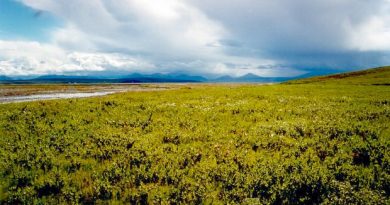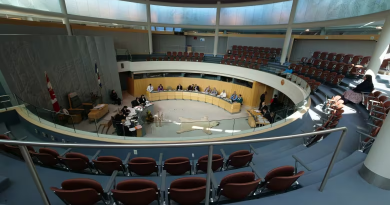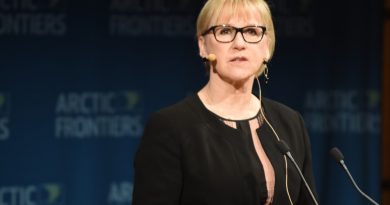Canada pledges to work with U.S. over competing claims to Arctic sea floor
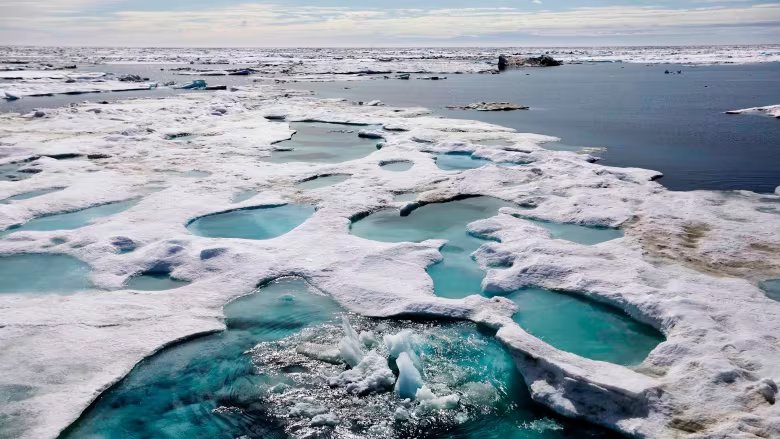
The federal government is pledging to work with its American counterparts after the U.S. claimed parts of the Arctic sea floor that Canada also wants.
Grantly Franklin, spokesman for Global Affairs Canada, said in an email that Canada expects to follow the process set out in a United Nations treaty despite the fact the U.S. hasn’t ratified the Convention on the Law of the Sea.
“Canada and the U.S. are in frequent communication with regards to the continental shelf in the Arctic and have expressed their commitment along with other Arctic states to the orderly settlement of overlapping claims,” Franklin wrote.
The U.S. filed its extended continental shelf claim last month with the United Nations agency that evaluates such requests. As expected, it includes a large chunk of the Beaufort Sea floor that Canada also seeks to control.
“It’s stuff that we’ve always suspected they were going to do,” said Rob Huebert, a professor at the University of Calgary’s Centre for Military, Security and Strategic Studies. “The Americans have been very careful not to have any overlap with the Russians but they have overlap with us.”
A large part of the overlap concerns how the border should be drawn. Canada wants it extended directly north from the 141st meridian while the U.S. says it should be drawn at a 90-degree angle from the shoreline.
Under the UN treaty, countries have the right to manage the environment and develop natural resources on the ocean floor if they can prove their continental shelf extends more than 200 nautical miles, or about 370 kilometres, from their coast and is a natural extension of the continent. Rights to an extended continental shelf don’t include control over matters such as fisheries or shipping.
The UN doesn’t rule on boundaries, but evaluates the science behind each country’s claim and leaves it to them to negotiate a settlement.
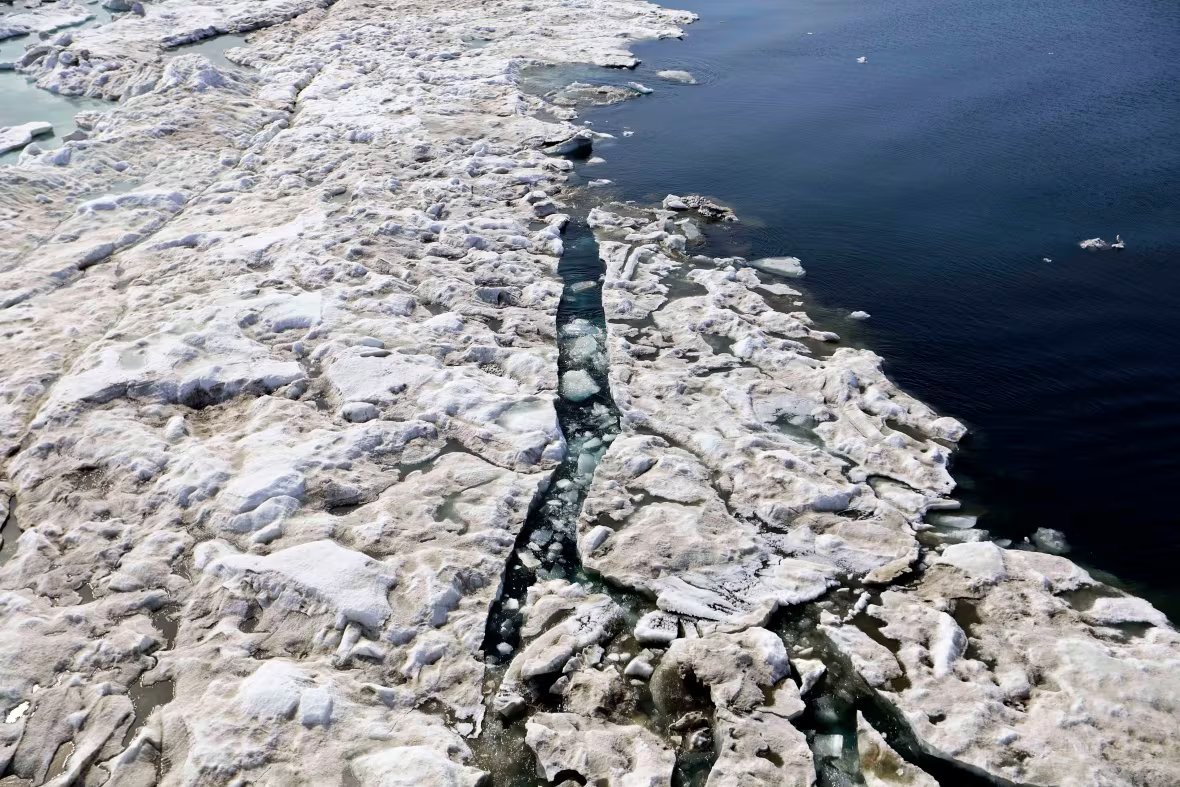
Although the U.S. has not signed the Convention on the Law of the Sea, it has pledged to work within it.
“The U.S. views the [convention] definition of the continental shelf as customary international law and has adhered to the definition in delineating its continental shelf limits,” Franklin wrote.
‘One ugly chicken soup’
The American decision to follow the convention is good news for the rule of international law, Huebert said.
He said Canada’s willingness to work with a country outside the convention may weaken the treaty. But given the small chance the U.S. will sign on any time soon, Huebert called the move “politically smart.”
Huebert notes that Canada, which filed its claim in 2019, now has overlapping claims with Russia and Denmark as well as the U.S.
“Every single one of our Arctic neighbours has an overlap with us,” said Huebert.
He said growing geopolitical tension around the world isn’t going to make drawing those lines on the waves any easier.
“You have to resolve things peacefully if you’re part of the convention,” he said.
“But you have to overlay that with the geopolitical situation we have now. We’re in such a conflictual environment — with Russia, primarily, and now our two key allies. It’s one ugly chicken soup.”
Canada’s submission would bring 1.2 million square kilometres of sea floor under Canadian control, a territory about the size of Alberta and Saskatchewan combined.
The Amerasian Basin, which includes the disputed area of the Beaufort Sea, is thought to include significant oil reserves.
The United States Geological Survey estimates it could hold up to 10 billion barrels of oil equivalent — although that number is considered a “probabilistic” assessment based on Arctic geology rather than a hard figure.
The UN body that assesses the quality of the science in each country’s expanded continental shelf claim is expected to take years to arrive at its decisions.
Related stories from around the North:
Canada: Canadian Coast Guard adds three weeks to Arctic season as icebreakers head North, CBC News
Greenland: Year-long, international Arctic science expedition comes to an end, Eye on the Arctic
Russia: Russia’s Rosatomflot files lawsuits against shipyard as world’s most powerful icebreakers are notoriously delayed, The Independent Barents Observer
Sweden: Sweden’s FM calls for more EU involvement in Arctic as country hosts EU Arctic Forum, Radio Sweden
United States: Trump advances new icebreaker plan, Alaska Public Media

